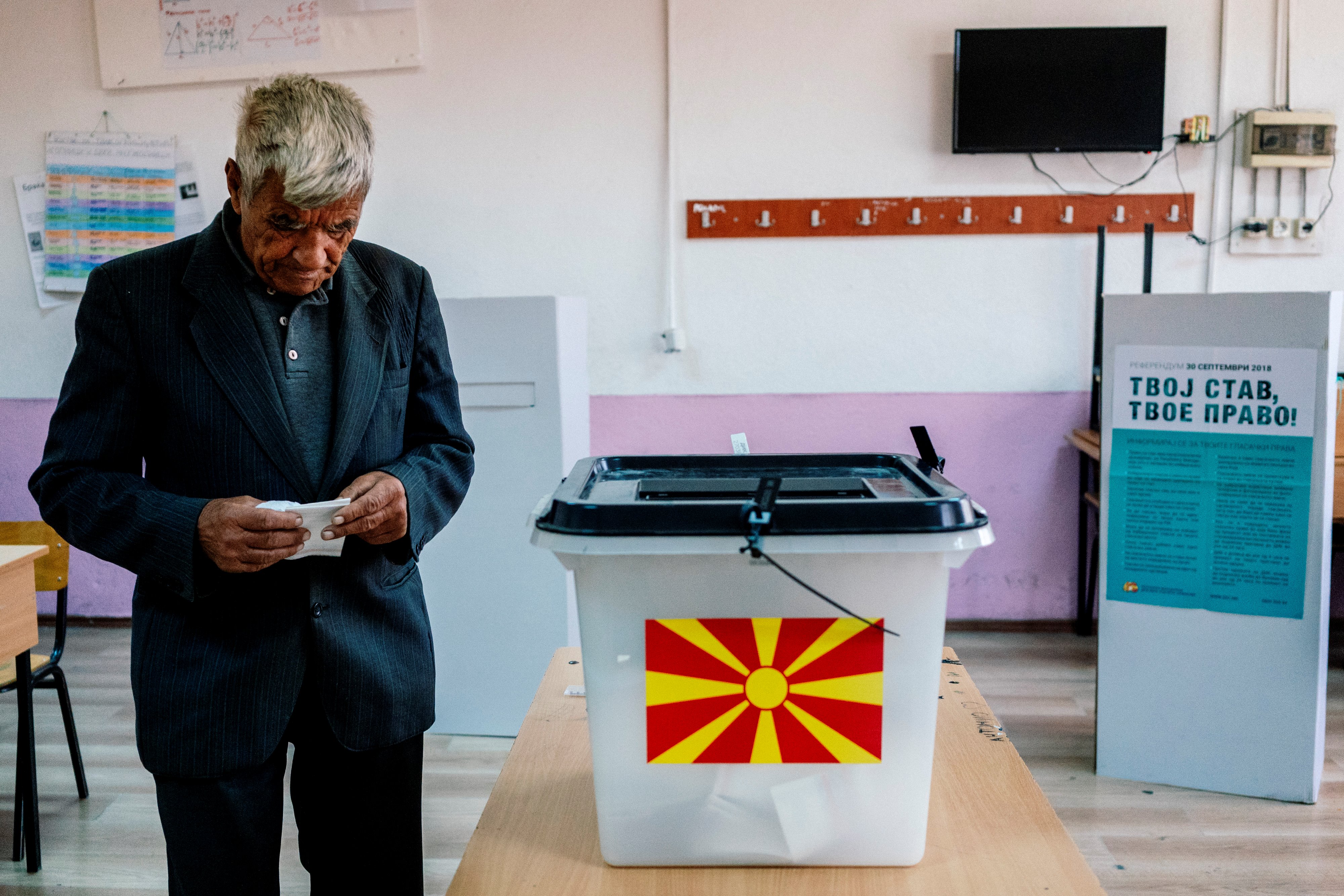Western balkans
The popular vote of September 30 on the deal with Greece and over renaming the Country “North Macedonia”, failed to reach turnout threshold. It was a consultative referendum and now both those in favour and those against are claiming victory. The opinion of experts, while the ball is in Skopje’s Parliament court. EU and NATO adhesion at stake

The long-awaited referendum in Macedonia of Sunday, September 30 on the deal with Greece and the renaming of the Country (North Macedonia) failed to secure a 50% turnout – only 36% of voters cast their ballots. However, a prevailing majority of voters said “Yes” to the Prespa deal reached amidst countless difficulties after 27 years of disagreements. Two days after the referendum in Skopje the results are interpreted in various ways, among supporters and opponents alike. However, almost all claim victory. SIR collected the opinion of experts and a Macedonian Catholic voice.
Spotlight on Skopje. The results are unconvincing, for the referendum could only be valid with a minimum turnout of 50% while only 36 percent of registered voters cast ballots. “The referendum does not settle the matter, said the President of Election Committee Oliver Derkoski. The question of the referendum was: “Are you in favour of membership in the European Union and NATO by accepting the deal between (the) Republic of Macedonia and Republic of Greece?” According to political analyst and Balkan expert Nikolay Krastev, journalist for BloombergTV Bulgaria, the reason lies in the fact that “voting took place in a very tense climate, with protests and counter-protests, marked by nationalistic discourse and sweeping fake news.” Krastev expected a “below-quorum turnout, but not this low”: “It’s a slap in the face of the government led by Zoran Zaev, promoter of the referendum.”
Early elections on the horizon. Zaev has no intention to give up and said he would call early elections. “It was a day of democracy, citizens voted freely, now the will of the people will be transmitted to Parliament”, he declared, hinting to the fact that the figures, in his view, are not that gloomy. According to the electoral roll, Krastev pointed out, “eligible voters number 1.8 million, but in the past years 300 thousand people relocated abroad” without renouncing citizenship, “thus to say that the majority approved the deal is not inaccurate.”
Consultative referendum. In fact, the poll was only consultative, not binding; now a set of amendments requested in the deal must be passed in Parliament, which means it would need to attract votes from the nationalistic opposition front to form a two-thirds majority. Thus Zaev’s appeal to his opponents is to continue with the process leading to EU and NATO adhesion, the alternative option, he declared, “is to hold early elections.”
Against Macedonian nationality? Nationalistic President Gjorge Ivanov slammed the deal with Greece as “a flagrant violation of Macedonian national sovereignty and a treasonous capitulation to Greece.” “We are the Macedonians”, reiterated Hristijan Mickoski, from VMRO-DPME nationalistic party, that however remains in favour of Euro-Atlantic partnership. “The referendum failed, the Macedonian people said No by not casting their ballots”, added Gordana Spasova, Catholic, from Strumitza. She believes that the question involved too many issues, “NATO, the EU, the deal with Greece”, and people “felt under pressure.” For Spasova “this approach tends to erase the Macedonian people, to renounce the history and origins” of the Nation. “Now – she went on – we must respect the will of that 64 percent who decided not to vote and seek other solutions to this problem.”
The support of EU and NATO. Premier Zaev’s government received major support by EU leadership, expressed by the High Representative for Foreign Affairs and Security Policy Federica Mogherini and Commissioner for Enlargement Johannes Hahn. “With an overwhelming majority those who exercised their vote said yes to the Treaty of Prespa regarding the name of the country and their European path”, they declared. In their view,“the vote is a historic opportunity not only for reconciliation in the region, but also for decisively moving the country forward on its European Union path.” The appeal to political and institutional leaders is “to act within their constitutional responsibilities beyond party political lines. A similar statement was released by the European Council President Donald Tusk and by NATO General Secretary Jens Stoltenberg.
What will happen next? “Early elections are imminent”, said political analyst Krastev, since nationalistic MPs won’t accept the constitutional amendments. In his opinion the situation is not that tragic: he envisages a sweeping victory for Zaev’s party in the next electoral round and that “the Prespa agreement will be adopted with the support of a large majority.” “Moreover – he added – the referendum’s failure highlights widespread apathy and lack of prospects in Macedonia, people are tired, the economy is weak while Macedonian people realize that EU and NATO adhesion won’t occur in the short run nor will it deliver unprecedented prosperity.”